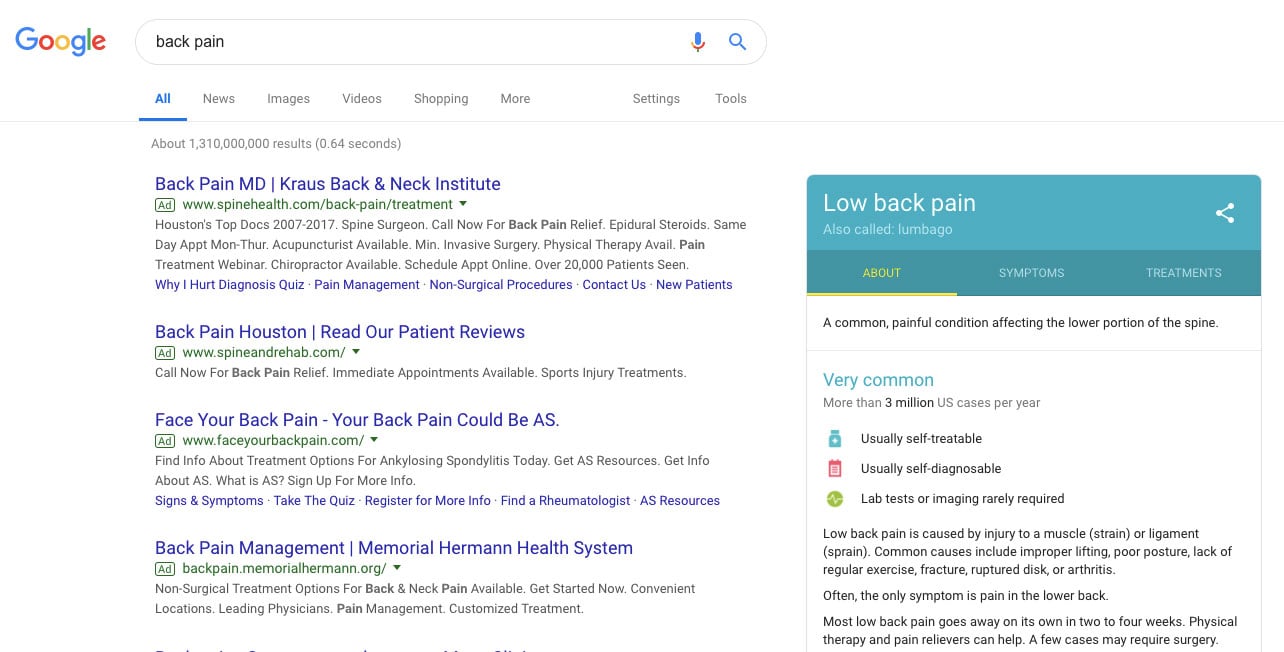At the core of a healthy, growing medical practice, you’re more likely than not to find an effective marketing strategy. These strategies usually cover digital marketing, offline advertising, and intentional efforts to build referral relationships with other healthcare providers.
If you’re not keeping an eye on the shifting technology landscape and evolving patient (consumer) attitudes, you’re going to fall behind.

If you are building a new marketing strategy for 2019 or revamping last year’s plan, it’s important to look at what might need to change. Here are some of the biggest marketing challenges we see for healthcare providers in 2019.
1. The [more] Empowered Patient
Patients have begun to assert more control over their health and their healthcare. As a marketer, this is NOT a bad thing, because one element of an empowered patient is information.
Information is a two-way street. On one hand, you’ll have patients that arrive with a folder full of print-outs from the web and they will inform you of their diagnosis. On the other hand, you have a tremendous opportunity to create and share information. Providers that are creating content, articles, and videos will become a trusted source of information. Use these materials in your marketing, and you’ll create trust before the patient ever takes a seat on your exam table.
The big takeaway here is to begin seeing patients as consumers. If you respect your patient as a consumer, you’ll understand why they ask questions about costs, options, and choices. If you create space for them to ask these questions, respect them for doing so, and provide information and answers, you’ll come out ahead.
2. HIPAA and Other Regulations
In healthcare, we have rules and regulations that are unique to our industry, and that’s not going to change in 2019. It’s important to know how to handle new marketing tactics, advertising platforms, and security of patient information.
Start by prioritizing the security of patient information. Keep PHI in an EHR where it belongs. Don’t import patient information into email marketing platforms and places where it doesn’t belong.
With that said, marketing and marketing automation will grow for providers in 2019. Providers will need to understand how to balance HIPAA, marketing tactics, and technology/software.
3. No-Click Google Searches will grow
While we may one day see Google search results pages that don’t even provide an option to click-through to a website, we’re not there yet… but we’re closer than you think. Many searches do not result in a click to a website.

Rand Fishkin (founder of Moz) did some analysis on click-stream data provided by Jumpshot. He discovered that mobile “no-click” searches have grown 11% in the last two and half years while desktop no-click searches have grown by have grown by 9.5%. The growth is slower than it could be, but here’s where we were in September of 2018:
For every 100 searches on Google mobile in September 2018, there were:
- 38.5 clicks on an organic result
- 3.4 clicks on a paid result
- 61.5 no-click searches
For every 100 searches on Google desktop in September 2018, there were:
- 65.6 clicks on an organic result
- 3.7 clicks on a paid result
- 34.3 no-click searches
Google has become very aggressive with their attempts to solve user queries without the need for the user to leave the results page.
For healthcare providers, in addition to organic rankings, you should also be focused on these SERP features in 2019:
- Ads
- Local Pack
- Knowledge Cards
- Featured Snippets
- Knowledge Panels
- Related Questions
- Reviews
- Videos
4. Reviews will become more important
Empowered patients research their health AND providers before scheduling an appointment, and reviews are factoring into their decision-making process. A recent survey found that 72 percent of consumers said they give the same weight to online reviews that they do to personal recommendations. This means consumers heavily rely on reviews to make their decisions, and healthcare consumers (remember those empowered patients?) are no different.
While there was initial resistance to online reviews for doctors, we’ve found most providers have embraced, or at least accepted the trend.
For 2019, focus on the following:
- Use automated tools to help manage the process
- Promote your positive reviews on your social channels and website.
5. Quality of Care and Patient Experience will be king
There’s an expression we use in marketing: Good marketing can’t fix a bad product. It can only help you realize, more quickly, that you have a bad product.
In healthcare terms, product comes down to two things:
- Quality of Care
- Patient Experience
As a marketing firm, we’ve seen the difference between practices that place a priority on the care they provide patients as well as the patient experience. Practices that are committed to these two areas work on staff development, continuing education, patient surveys, and ongoing training.
We can tell you, without a doubt, that it makes a tremendous difference when it comes to marketing and brand building.
About the Author
Casey O'Quinn
Casey founded Gravity Digital in 2000 after serving as the Internet Services Director for a Nashville-based Ad Agency. He's a rare breed that operates both left and right brain, so along with oversight of the company he's active in the creative process for our clients.
Follow Casey O'Quinn:
LinkedIn |
Twitter


